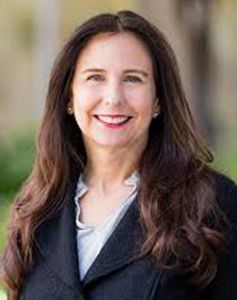IS THE NEW practice of social distancing contributing to another deadly epidemic, that of social isolation and loneliness? If you are a cancer patient, this can have profound implications. In an interview with THE WEEK, Dr Dianne Shumay throws some light on coping mechanisms that can help.
Q/ Should cancer patients skip their psychotherapy treatments at medical centres to avoid exposure to Covid-19?
A/ There is no need for patients to skip their psychotherapy visits, because as field psychologists and therapists we have shifted our care to video sessions. For those patients who do not have video or internet facility, we are doing the same via telephone. Our services are needed all the more now.
Q/ Who are the vulnerable, and what can we do to support them?
A/ If we are talking about a vulnerability from a psychological point of view, I would emphasise that anybody who is socially isolated is going to have a much harder time. People who do not have family or friends at all are particularly vulnerable. We know of people who do not have financial resources and people who have to continue working though they know they are exposing themselves to the virus. People who are from marginalised communities or who do not have access to video chat or internet information. We need to reach out to people in our communities and in our network who have more needs. I think this is a way that we can really give to each other at this time. When we write a letter to ourselves from the future, we are going to say we did the right thing and we did what we could to help each other.
Q/ For a lot of cancer patients and survivors, the isolation is triggering certain memories and difficult emotions. When is the right time to call for help?
A/ I think that cancer psychologists and other support programmes can be helpful for anybody with cancer at any point. It is really about thriving and being the best you can possibly be. If you do find yourself depleting your usual coping strategies or being resistant to engaging in things that you know to do, or experiencing more anxiety and depression, reach out to somebody who has experience working with cancer patients.
Q/ Are we seeing psychosomatic issues in cancer patients and survivors?
A/ By psychosomatic, we usually mean physical symptoms that may have a relationship to emotional experiences. It is not necessarily that the physical symptom is not real, it is that it can be worsened in the presence of more emotional symptoms. I am seeing an increase in paying attention to physical symptoms that may or may not be serious: Do I have a sore throat? Do I have a headache? Is this cough related to Covid?
Q/ What can loved ones do to help ease cancer patients’ anxiety and depression?
A/ There is a lot family members and friends can do. Do not scold them or indulge in fear mongering. Step up and help bring food, bring encouragement, call and give loving words of support.
Q/ What advice do you have for cancer patients who are feeling worried?
A/ The first thing is to realise that worry is normal. There are a lot of feelings floating about right now. Accept the ups and downs of worry and anxiety as part of human reality.
Self-compassion is incredibly
important right now. And compassion towards others is important, too. Sometimes, one of the best things we can do is to take a deep breath and ask, ‘Is there something good that I can do for someone else today?’ This will bring us out of the worry vortex and out into a sense of doing something helpful and meaningful.
I like to harvest diamonds from experiences. A lot of grief, terror and fear is floating about right now. But even in the midst of those experiences, as we sit and look out the window, we see a bird on a tree and say, wow, that was a diamond that just came into my view. And so harvesting diamonds and beauty can really go a long way.
Lean on the social support that is available. I know that a lot of us are lonely. But there are so many options available like online support groups or calling a friend. Even writing letters would be lovely to do right now. Practice mindfulness, even if you have never tried it before. There are a number of mindfulness apps and free online-guided mindfulness programmes. Take a minute to learn how to stay present and get some distance from worrying thoughts.
I think that journaling can be really helpful to take what is happening inside our minds and put it down on paper. For example, a gratitude journal is a lovely idea. If you have been harvesting some of the diamonds from your experiences, you can look back and see how many wonderful things are happening in this world.
Write yourself a letter from the future, like a year from now. Look back on what we did during Covid-19 of 2020. And in that letter, describe all the wonderful attributes that we were able to display and the values that we were able to live and the compassion that we showed.


